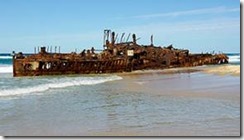ewq1938
Well-Known Member
- Jul 11, 2015
- 7,528
- 1,491
- 113
- Faith
- Christian
- Country
- United States
OzSpen said:ewq,
Biblically, we need some clarification:
In John 12:27, Jesus said, "Now is my soul (psuche) troubled, while in a similar context in the next chapter he said, "Jesus was troubled in his spirit (pneuma) [John 13:21]" This hardly means that Jesus "life force" (breath) was troubled.
The words "soul" and "spirit" can be used interchangeably.
Excellent work. Few understand this fact.
The spirit is a life force but no matter what, something leaves the body and returns to God and it is alive.When Rachel died, the Bible records: "Her soul (nephesh) was departing [she had died]" (Gen. 35:18), but Eccl. 12:7 records that at death, "the spirit (ruach) returns to God who gave it." This hardly means that one's "life force" (breath) was returning to God.
At death, the "soul" or "spirit" departs.
It can be killed but not by a human being...only God can kill/destroy it.In Matt. 10: 28, we read, "And do not fear those who kill the body but cannot kill the soul (psuche). Rather fear him who can destroy both soul (psuche) and body in hell" (ESV). It seems clear from this verse that "soul" refers to the part of the person that lives beyond death. If the "soul" was only a "life force", it could be killed.
A human being is said to consist of either "body and soul" or "body and spirit."
That's not what Jesus said. His authoritative view was that the "soul" cannot be killed. It cannot die.
It can if God decides it.
But when Paul wants to deliver an erring brother over to Satan, he said that it was "for the destruction of the flesh, that his spirit (pneuma) may be saved in the day of the Lord Jesus" (1 Cor. 5:5).
Therefore, in both OT and NT, "soul" and "spirit" can be used interchangeably.
Exactly. I have a work comparing the Greek and Hebrew definitions and they are identical.
So, what does "spirit" mean when applied to a human being, in the light of the above scriptural explanation? Most people, Christian and non-Christian, believe that there is an immaterial part to human beings, a soul / spirit that will live on beyond the "life force" (or breath) that has left the body.
There are occasions in the Bible when "spirit" is used to refer to the breath of animals or human beings, but the above verses show that spirit / soul refers to the immaterial part of the human unity (body and soul/spirit) that goes to be with Christ and cannot be killed.
All correct except it can be killed but not by mortal beings.
Why not?This soul can sin. This is implied from verses such as 1 Peter 1:22, "Having purified your souls by your obedience to the truth for a sincere brotherly love, love one another earnestly from a pure heart" (ESV). Surely this does not refer to breath or life force!
okLet's get no more complicated than the simplicity of what the Bible states that the spirit of a human being goes to God at death and it cannot be killed. Simply: the spirit/soul of a human being is the immaterial part of us that survives death.




